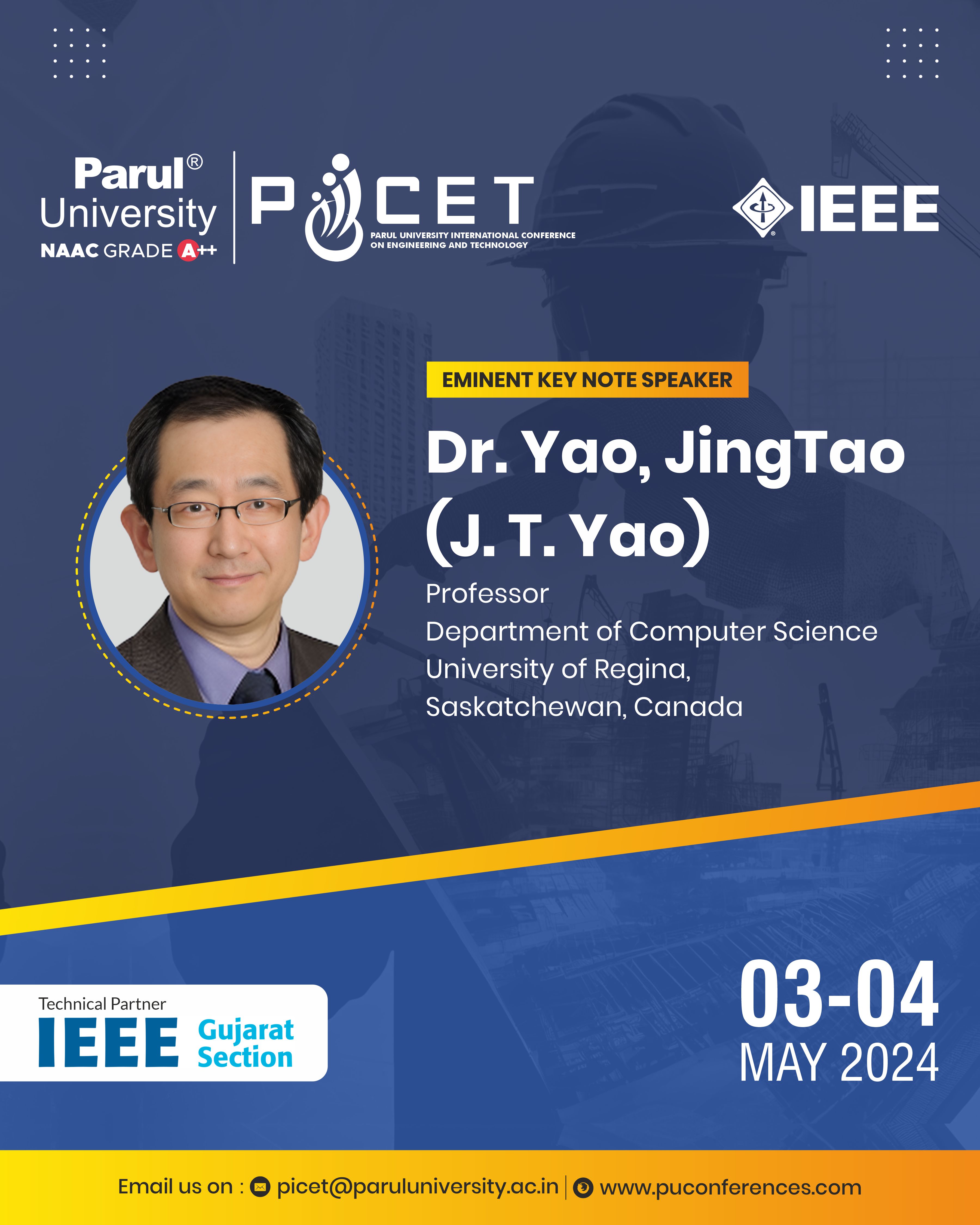
Keynote Talk Title
Three-way Clustering in Machine Learning
Clustering, a machine learning technique, organizes unlabeled data points into distinct groups based on their similarities. However, in numerous scenarios, confidently assigning specific data points to particular clusters becomes challenging. Soft clustering addresses this challenge by introducing a probability factor, indicating the likelihood of a data point belonging to different clusters. Three-way clustering is a modern extension of soft clustering rooted in the concept of three-way decisions. Specifically, each data point is allocated a value that indicates whether it belongs inside, outside, or partially inside a cluster. There are two types of three-way clustering techniques, namely evaluation-based approaches and operation-based approach. The evaluation-based approaches rely on a membership function to calculate the degree of a data point belonging to a cluster. The operator-based approaches use a pair of operators to construct a three-way cluster from a hard two-way cluster. We will introduce, review, and analysis various three-way clustering techniques in this talk. In addition, history of three-way clustering and future development of three-way clustering will also be discussed.
About Speaker
Dr. JingTao Yao, University of Regina, Canada
Dr. JingTao Yao received a Ph.D. degree from the National University of Singapore. He is currently a Professor with the Department of Computer Science, University of Regina, Canada. Dr. Yao serves as an Area Editor of International Journal of Approximate Reasoning, Special Section Editor of Cognitive Computation, and a member of Editorial Boards of various international journals. He is currently the President and a Fellow of the International Rough Set Society. He was a member of Canada NSERC Discovery Grant Selection Committees and Evaluation Groups: Computer Science from 2017 to 2020. He has been a Chair or a member of the Program Committee of numerous international conferences and has edited many volumes of conference proceedings. Dr. Yao’s research interests include granular computing, rough sets, data mining, and Web-based support systems. He has over 100 refereed journal articles and conference papers published in these areas and has received over 7,000 citations according to Google Scholar. He has three highly cited papers (top 1%) and one hot paper (top 0.1%) according Web of Science. Dr. Yao has been recognized as a top 90,000 (top 0.86%) scientist across all scientific fields over half century based a new standardized citation metrics developed by scientists led by Stanford University.

